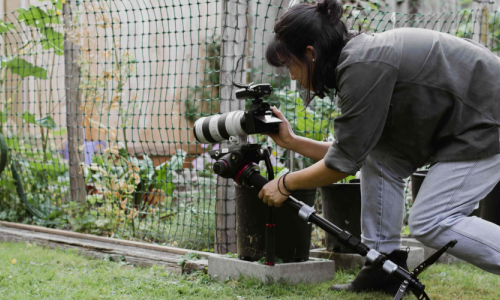
In the previous segment of this series I talked about how my entrepreneurial journey began, and how it started from a class. In this part of the series I want to focus on sharing some tips for those that are in the process of beginning their entrepreneurial journey.
1. SFU Venture Connection Is Your Best Friend
Out of the many things that didn’t go our way, one of the things that we did right was applying to the Venture Connection eCoop and incubator program at SFU.
Think of Shark Tank, but an SFU version. Here you pitch your idea tothe mentors and staff from Venture Connection, and if they approve of your idea they’ll provide your team $10,000. How you decide to use the 10,00 is up to your team. Their program is great because as a student, the barriers that stop us from starting a company include being too busy or having no source of income. Venture Connection provides you with both the time to work on your venture and the funding.
While the money and time are amazing, the connections you foster with the mentors at Venture Connection are what make the experience valuable. Mentors are like your personal guardian angels, cheerleaders, and advisors all at once. They help you with things you know you needed help with and also with things you didn’t realize you needed help on as well. In my team’s case our mentors helped us with figuring out our cost structure, marketing plan, legal necessities, and other general things we didn’t know too much about.
These very mentors will help you get started and walk you through the doubts and problems you will definitely face throughout the process of starting a company. SFU Venture Connections is a MUST if you’re an upcoming entrepreneur at SFU.
2. Starting a Venture Takes Full Commitment: You Either Go 100% in or Not in at All
If you’re feeling wishy-washy about starting something, don’t. If you feel like your partners aren’t as committed as you, don’t partner with them. Everyone, including yourself, should be 100% fully in. Imagine you’re all jumping into a cliff together holding hands. Everyone needs to fully commit to the jump or else you’ll end up hurting yourselves.
It’s kind of the same thing with starting a company. If one of you isn’t as invested as everyone else, it will affect everyone and everything down the road. This was one of, if not the biggest, hurdle in starting our venture. Everyone’s priorities and commitment levels were all over the map and are partly the reason why there are only two founders now.
3. Balancing School and Your Company Can Be Tough - Focus on One at a Time
Getting your company off the ground is tough work. In those beginning stages when you’re trying to figure everything out, working on it takes up a lot of your time. Unless you know what you’re doing, which most likely isn’t the case if this is your first rodeo, there are going to be a lot of moments where you feel lost and overwhelmed. The only way to get through this is to give yourself the time to figure out what needs to be figured out.
That can be extremely tough when it’s hard to make the time. Especially when you have other deliverables and activities to do such as school. If I could do it all over again, I would just focus on one thing.
At one point last semester I was working on my company part-time, yet the rest of the time I was doing classes, joined a club, and a handful of other projects unrelated to Studio Kleio. While I was still putting in a lot of hours into the company, at the end of the day I began feeling burnt out and overwhelmed with the number of things I was juggling. The quality of work took a hit, and in the end, everything was affected. Studio Kleio was not as successful as I would have expected or liked, nor did I end up succeeding in my classes or the other activities I did.
I took on so much that everything I completed was mediocre, in my opinion. I know there are some keeners out there that think they can take it all and do a bunch of different things at once. Well, I can almost guarantee you can’t and even if you can, you shouldn’t. Starting a company is similar to doing an internship. Most of the time you’re not allowed to take classes while you’re in an internship, so why should you when starting your business?
4. Find People That Are Good at Things That You’re Not and Then Define Your Roles
You and your co-founders are like a soccer team; there are different positions and roles. Ask yourself, who’s the goalie, who’s playing defense, midfield, and forward? You can’t all be forwards or all be goalies because that just won’t work. It works the same in a company: you can’t all be CEO’s, COO’s, CFO’s, Marketing Directors….etc.
You need to find people that are good at roles that you’re not good at and then be able to trust that each member will deliver in their area of expertise. Once you find the role that fits you, define it officially. What I mean by that, is give yourself a title. As minuscule as you may think a name might be, adding a title to yourself does help you grow into it.
I hope that these recommendations can help you in forming your venture. In the final part of this series, I’m going to share what went wrong in the case of my own venture so that you can avoid making the same mistakes in yours.
Beyond the Blog
- If you’re interested in learning more about the Venture Connections Program, check out their website here.















